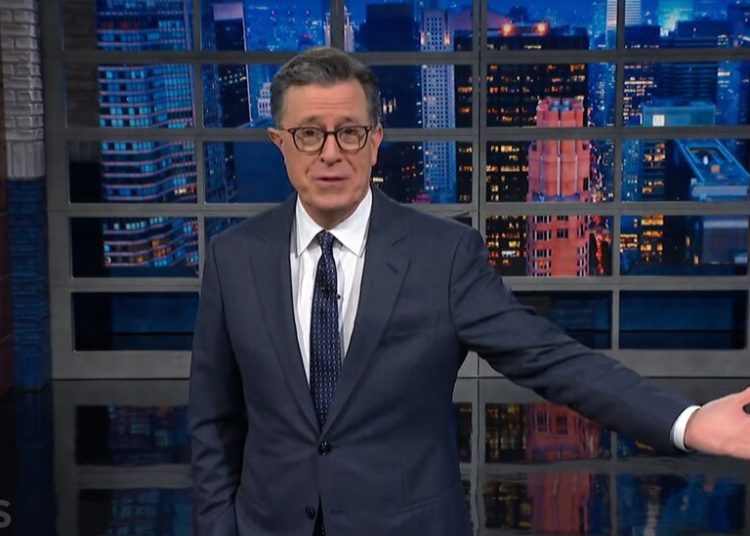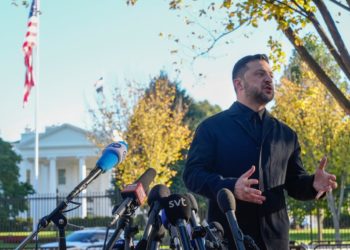BRUSSELS — Intelligence agencies across Europe are burying decades of distrust and starting to build a shared intelligence operation to counter Russian aggression — a move accelerated by the new American capriciousness in supporting its traditional allies.
In the past year, many national capitals have embedded intelligence officials in their Brussels representation offices. The European Union’s in-house intelligence unit has started briefing top-level officials. And the bloc is toying with the idea to build up stronger, CIA-style powers — long considered unthinkable.
The push for deeper intelligence cooperation accelerated sharply after the Trump administration abruptly halted the sharing of battlefield intelligence with Kyiv last March.
Donald Trump “deserves a Nobel Peace Prize for bringing the services of Europe together,” said one Western intelligence official, who was granted anonymity to disclose details of how they cooperated with American counterparts.
POLITICO spoke with seven intelligence and security officials who described how the rupture in transatlantic trust is driving Europe’s spy agencies to move faster — and closer — than ever before.
It’s all part of a bigger reconsideration of practices. European intelligence services have also started reviewing more closely how they share information with U.S. counterparts. The Dutch military and civil intelligence services told local paper De Volkskrant on Saturday they’d stopped sharing certain information with their U.S. counterparts, citing political interference and human rights concerns.
Officials fear that transatlantic forums, including the defense alliance NATO, will become less reliable platforms to share intelligence. “There is a sense that there could be less commitment on the part of the United States in the months to come in sharing the intelligence they have — both inside NATO and at large,” said Antonio Missiroli, the former Assistant-Secretary General for Emerging Security Challenges at NATO.
Security services are still overcoming decades-old trust issues. New revelations that Hungarian intelligence officials disguised as diplomats tried to infiltrate the EU institutions show how governments within the EU still keep close watch over each other.
To cope with the distrust, some leading spy agencies are pushing to set up groups of trusted countries instead of running things through Brussels.
Club de Berne
Unlike tight-knit spy alliances like the Five Eyes, European Union member countries have long struggled to forge strong partnerships on intelligence sharing. National security remains firmly in the hands of national capitals, with Brussels playing only a coordinating role.
One way European services have communicated traditionally is through a secretive network known as the Club de Berne, created nearly 50 years ago in the Swiss city it is named after. The club has no headquarters, no secretariat and meets only twice a year.
In recent years, the group has coordinated its meetings to roughly align with the rotating presidency of the Council of the European Union. But the Club is hardly a mirror image of the EU. Malta has never joined, Bulgaria only recently signed on, and Austria was suspended for a time over concerns it was too soft on Moscow before being readmitted in 2022. Non-EU countries such as Switzerland, Norway and the U.K. are also members.
“Club de Berne is an information sharing architecture a bit like Europol. It’s designed to share a certain kind of information for a particular function,” said Philip Davies, director of the Brunel Centre for Intelligence and Security Studies in London. “But it’s fairly bounded and the information that’s being shared is potentially quite anodyne because you’re not plugging into secure systems and [there are] national caveats.”
Major European Union intelligence players — France, the Netherlands, Germany, and until 2019, the U.K. — saw little value in sharing sensitive information with all EU countries, fearing it could fall into the wrong hands.
Eastern European services, like Bulgaria’s, were believed to be filled with Russian moles, said Missiroli. One Bulgarian security official argued that was no longer the case, with the old guard largely retired.
But while it offered some mode of collaboration, the Club de Berne also left Brussels’ EU-level officials largely in the dark. “The problem with talking about European intelligence sharing is that European intelligence sharing is not the same thing as EU intelligence sharing,” said Davies.
Calling on the EU
Recent geopolitical shifts have forced the European Union to rethink its approach. Former Finnish President Sauli Niinistö called last year for the EU to create a CIA-style agency, coordinated from Brussels, in a landmark preparedness report at the request of Commission President Ursula von der Leyen.
Niinistö laid out the idea of a “fully fledged intelligence cooperation service at the EU level that can serve both the strategic and operational needs,” while adding that “an anti-sabotage network” is needed to protect infrastructure.
If there is such a thing as a collective EU intelligence agency, the European Union’s in-house Intelligence and Situation Centre (INTCEN) at the European External Action Service (EEAS) is the closest to it. The center conducts analysis based on the voluntary contributions by EU countries. Spies from national agencies do secondments at the center, which helps building up ties with national intelligence.
Croatian intelligence chief Daniel Markić took over the helm of INTCEN in September 2024 on a mission to beef up information-sharing with the agency and get direct intelligence to EU leaders like von der Leyen and foreign policy chief Kaja Kallas.
Together with its military counterpart — the EU Military Staff Intelligence Directorate — the two services form the Single Intelligence Analysis Capacity (SIAC), which produces shared intelligence assessments for EU decision-makers. In April, SIAC held its annual meeting in Brussels, this time drawing top officials of the European agencies to attend, along with Kallas.
Spy chiefs at that meeting underlined a growing push for Europe to build its own independent intelligence capabilities. But some also worried that overemphasizing the need for autonomy could further weaken ties with the U.S., creating the very gaps Europe is trying to avoid.
Trust issues
Slowly but surely, Brussels is building up its own intelligence community. For instance, intelligence liaison officers now exist in most permanent representations of EU member countries in Brussels.
The Belgian Security Services (VSSE), which are officially tasked with overseeing spying activities around the EU institutions in Brussels, have also briefed members of the European Parliament on tactics used to coerce lawmakers into foreign espionage.
Still, one European intelligence source told POLITICO that while cooperation between EU countries was now “at its best in modern history,” agencies still work first and foremost for their own national governments.
That is a key stumbling block. According to Robert Gorelick, the retired head of mission of the U.S. CIA in Italy, “The reason that an EU-wide intelligence service couldn’t exist is that there is too much variety in how national agencies work.” What’s worse, he added: “There are too many countries — 27 — for there to be such trust in sharing.”
Some countries have leaned toward setting up smaller ad hoc groups. After the U.S. paused its intelligence sharing with Ukraine in March, a Coalition of the Willing led by France and the United Kingdom met in Paris and agreed to expand Kyiv’s access to European-operated intelligence, surveillance technology and satellite data.
The Netherlands is looking at beefing up cooperation with other European services, like the United Kingdom, Poland, France, Germany and the Nordics — including sharing raw data. “That has been scaled up enormously,” Erik Akerboom, the head of the Dutch civil intelligence service, told De Volkskrant.
Yet there is still a long way to go to build enough trust between 27 EU members with differing national priorities. In October, it was revealed that Hungarian intelligence officials disguised as diplomats tried to infiltrate EU institutions while Olivér Várhelyi (now a European commissioner) was Hungary’s ambassador to the bloc, and place Orbán cronies in key positions.
Niinistö, who wrote the EU’s preparedness report last year, told POLITICO in an interview this month that a full-fledged EU intelligence agency was still “a question of the future.”
He added: “It comes to the word trust when we talk about preparedness, because without trusting we can’t cooperate very much.”
The post Europe’s spies are learning to trust each other — thanks to Trump appeared first on Politico.




